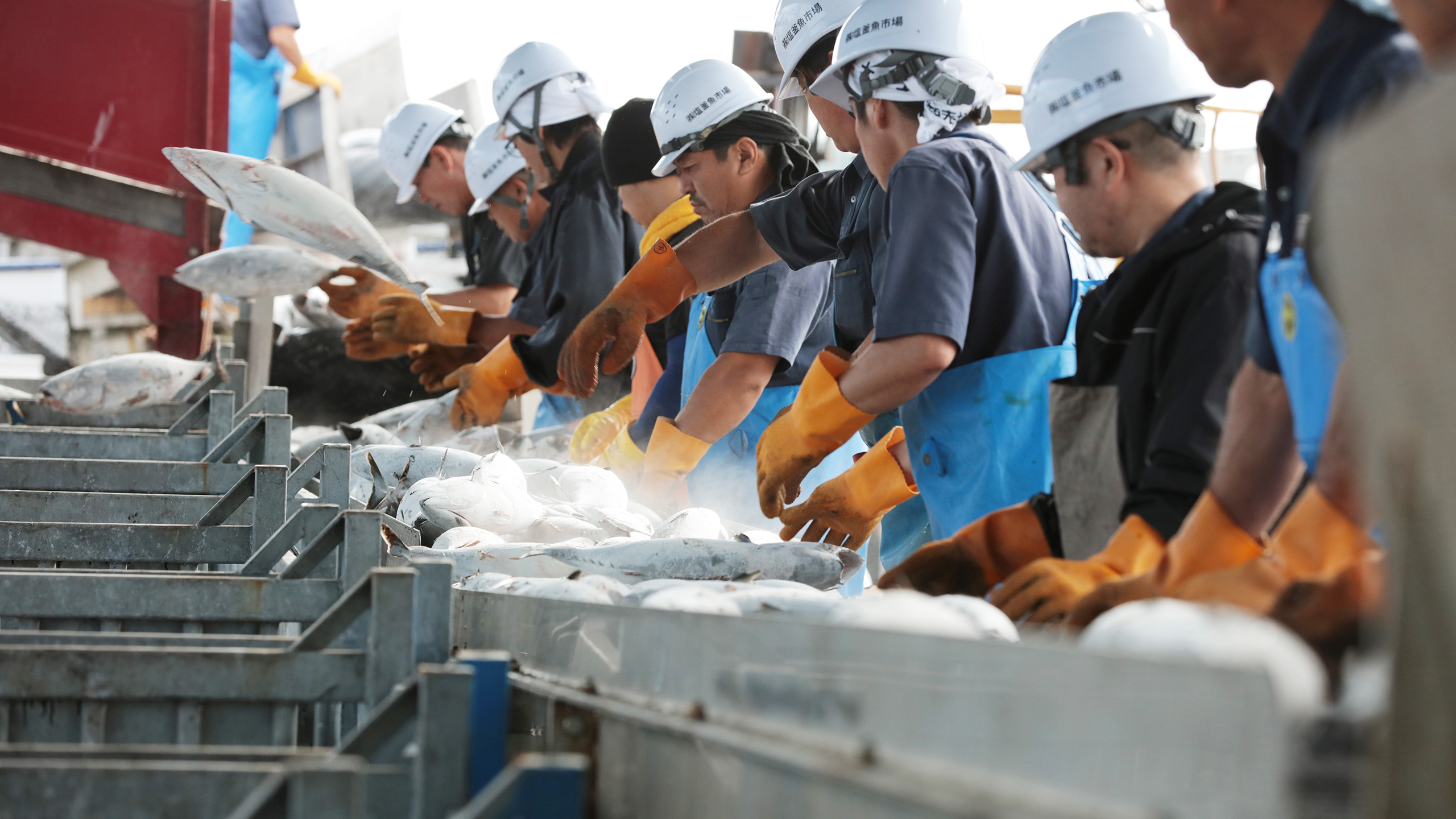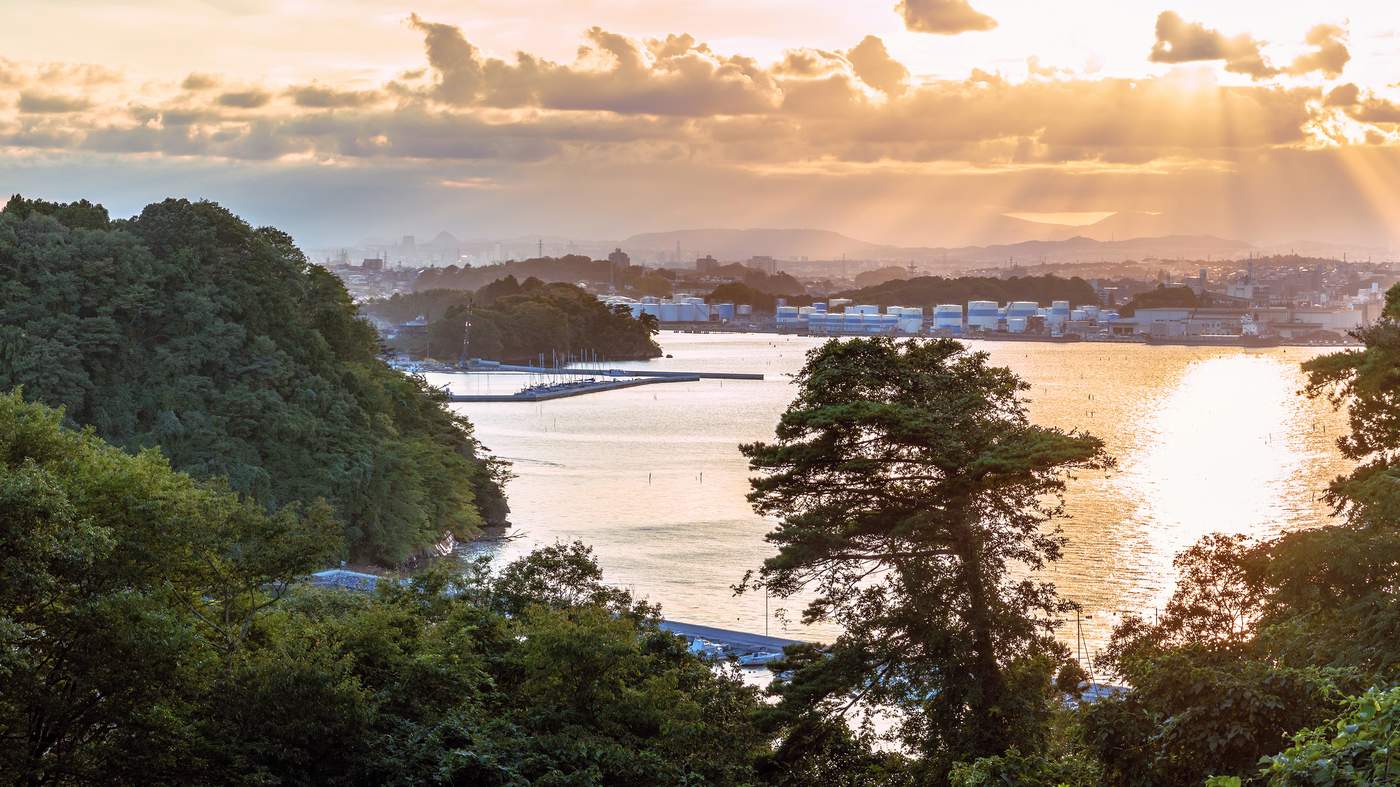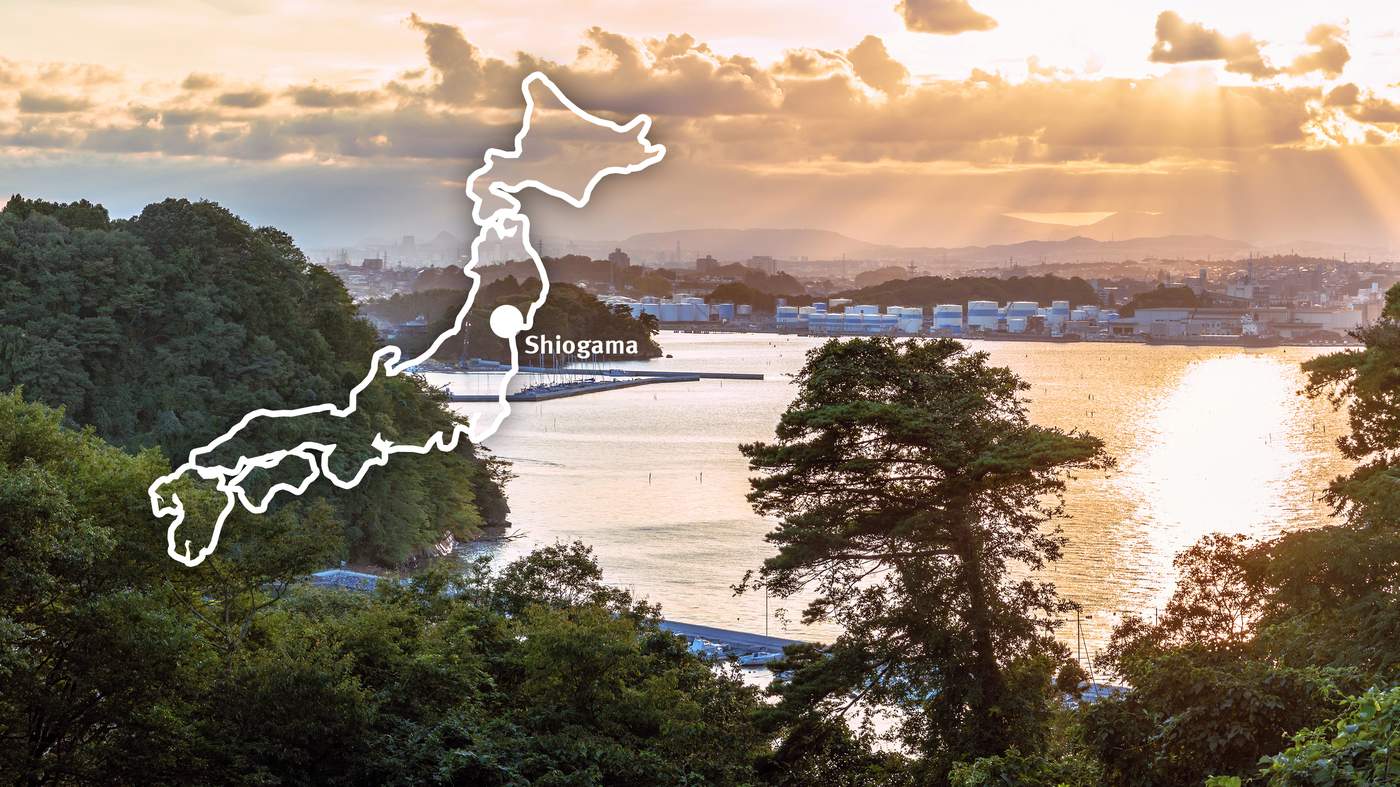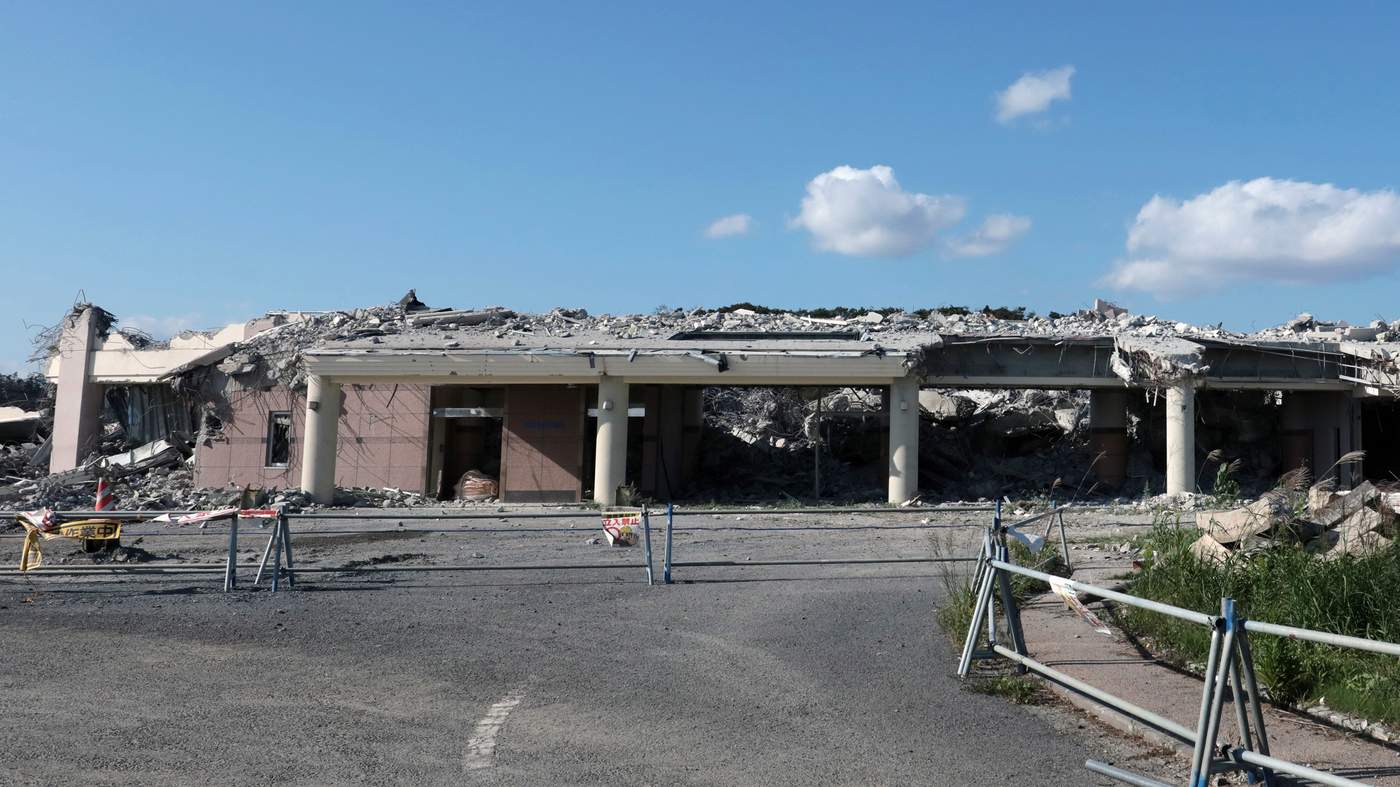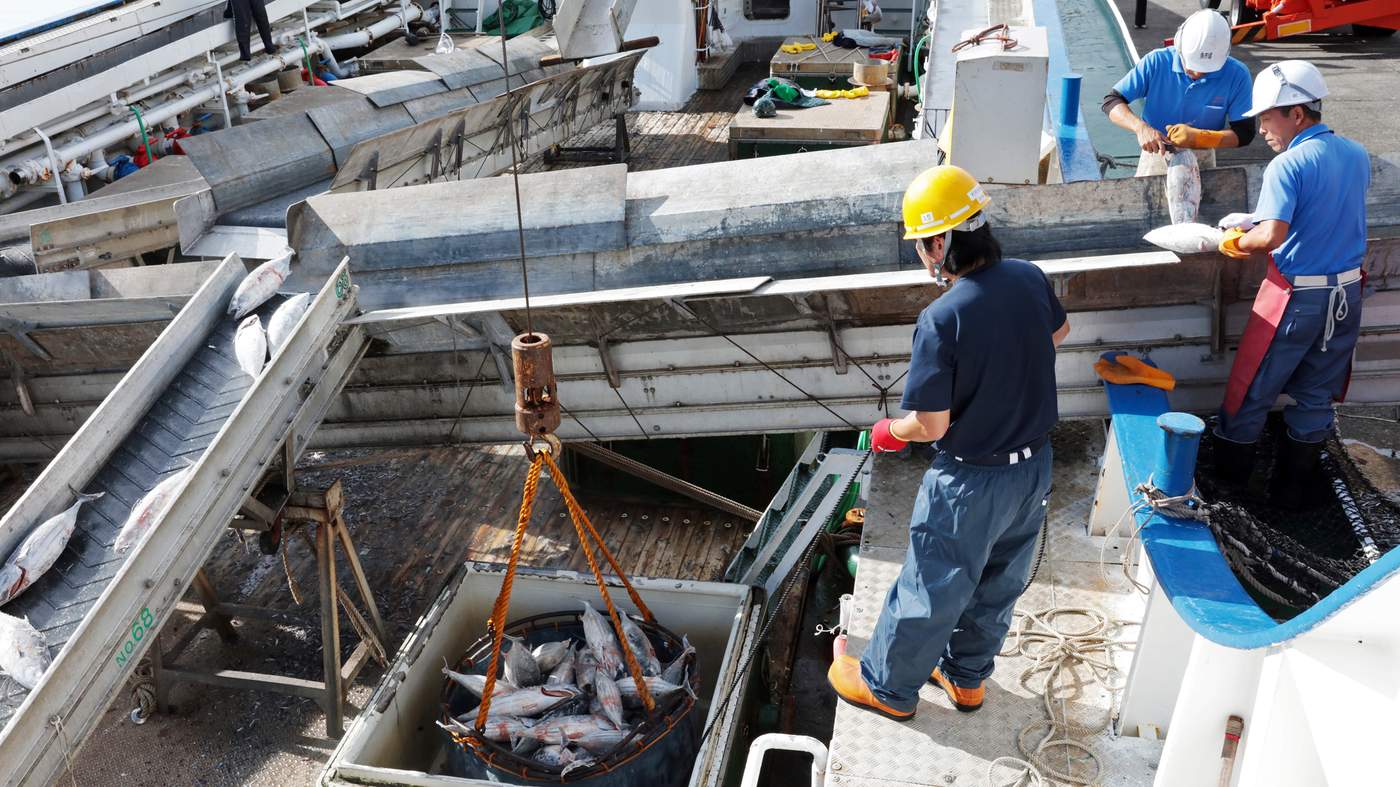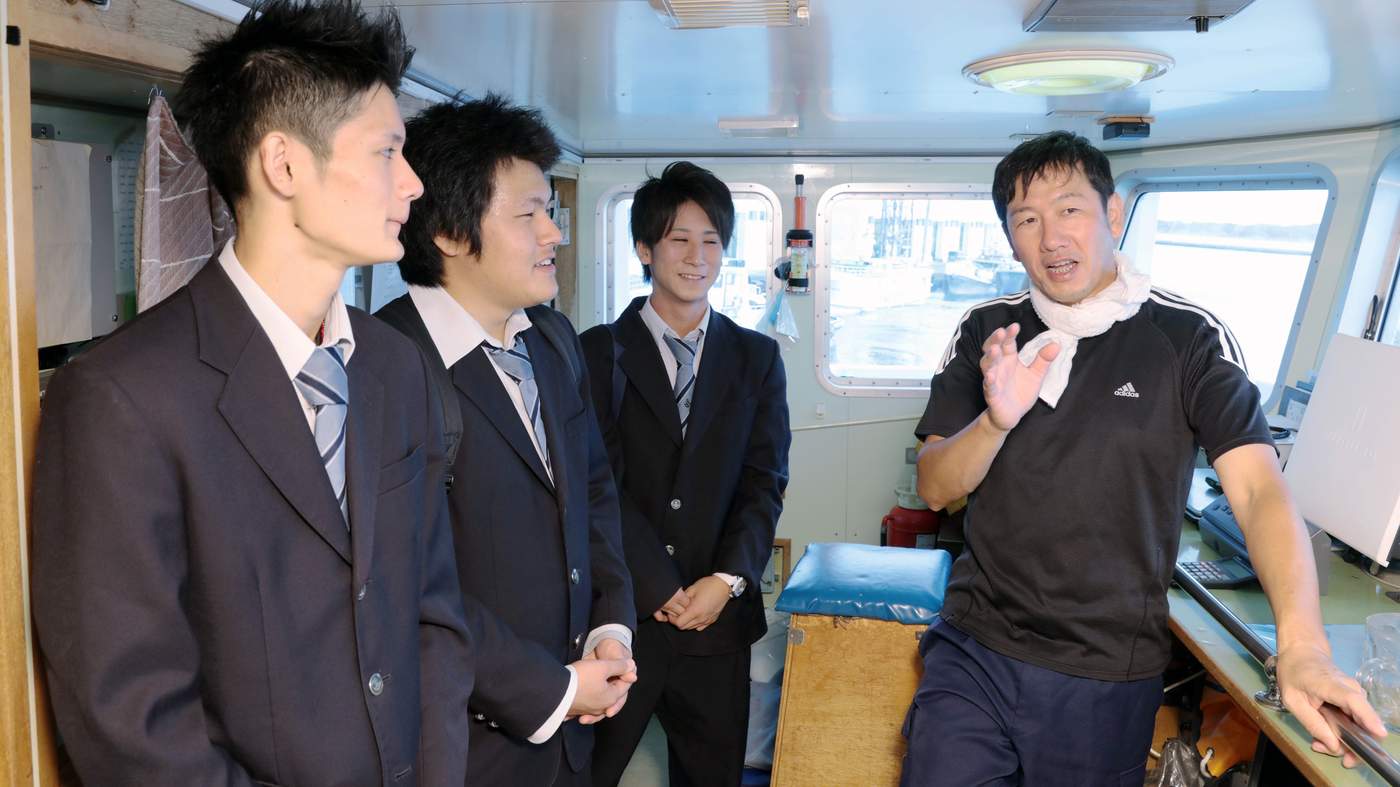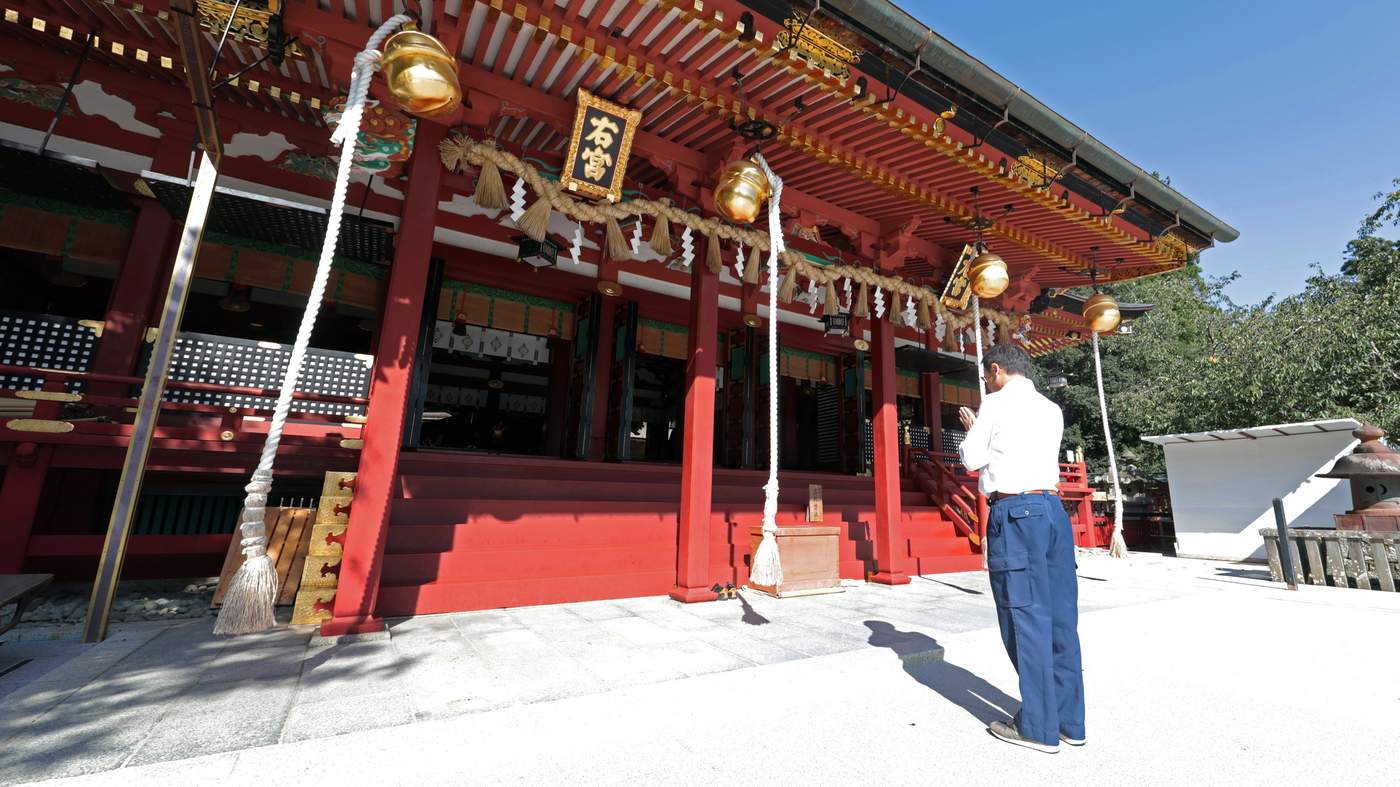The boat had set out before the earthquake in March and was now stranded with its catch. Its intended base was Kesennuma, 80 KM north, but the port there had been destroyed.
Mastunaga’s own business had been affected by the quake and tsunami; the ground had sunk 30cm at his factory’s entrance and fish was in short supply. Furthermore, he wasn’t equipped to land the boat’s skipjack tuna catch, but he accepted the responsibility.
He had just 48 hours. So, he called a colleague 500km away, who drove the necessary gear to Shiogama. They then spent a whole day setting up.
By the time the boat reached Shiogama, everything was in place and due to Mastunaga's decisive leadership, a massive 300 tonnes of valuable skipjack was saved.
Kenji Matsunaga is originally from Yaizu City in Shizuoka Prefecture, which has one of the largest Japanese ports for landing skipjack and albacore tuna. Before relocating to Shiogama, he’d worked for years managing the processing of these species in his hometown. When he moved to head up Meiho he found that tuna supplies were often lacking.
Incredibly, out of catastrophe came hope. The success of the landing operation inspired Matsunaga, who had already been thinking of starting his own fishery. Having brought tuna in at Shiogama, he could see a future for his business and the region.
Japanese law limits the number of fishing vessels in operation at any one time, so Matsunaga had to wait for someone to give one up. He eventually bought a boat from Kyushu but was keen to register it in Shiogama as a sign of his intention to revitalise the local industry after the tsunami. In 2012 the newly named 'Meiho Maru' signalled the birth of a new fishery.
Having experienced procurement problems in the past, Matsunaga made sure his new venture was driven by another principle: sustainability. If he was going to fish for tuna,there had to be a consistent supply – forever.
On 8 June 2013, Meiho Maru made its first landing of pole-and-line caught albacore tuna in Shiogama. In 2015 Matsunaga entered the fishery for assessment to the Marine Stewardship Council Fisheries Standard. In 2016 it was independently certified. It was only the third fishery in seafood-loving Japan to gain this global recognition.
Always with his eye on the big picture, Matsunaga also entered the Meiho processing company for auditing under the MSC's Chain of Custody Standard. Now the business is certified too and part of a fully traceable global supply system for sustainable fish and seafood.
Since then the Meiho tuna has gone on to be launched - with the MSC blue label attached - at Aeon, Japan's largest supermarket chain.
Thanks to Matsunaga's vision and hard work, fishing has a bright future in a place where it's a fundamental part of life. Still, he remembers hard times and knows how natural disasters can affect such long-held traditions. Another old custom offers comfort; he regularly visits the local shrine. There he prays for the safe sailing of Meiho's boats, the prosperity of his fishery, company and the entire Tōhoku region.
Share this story:

